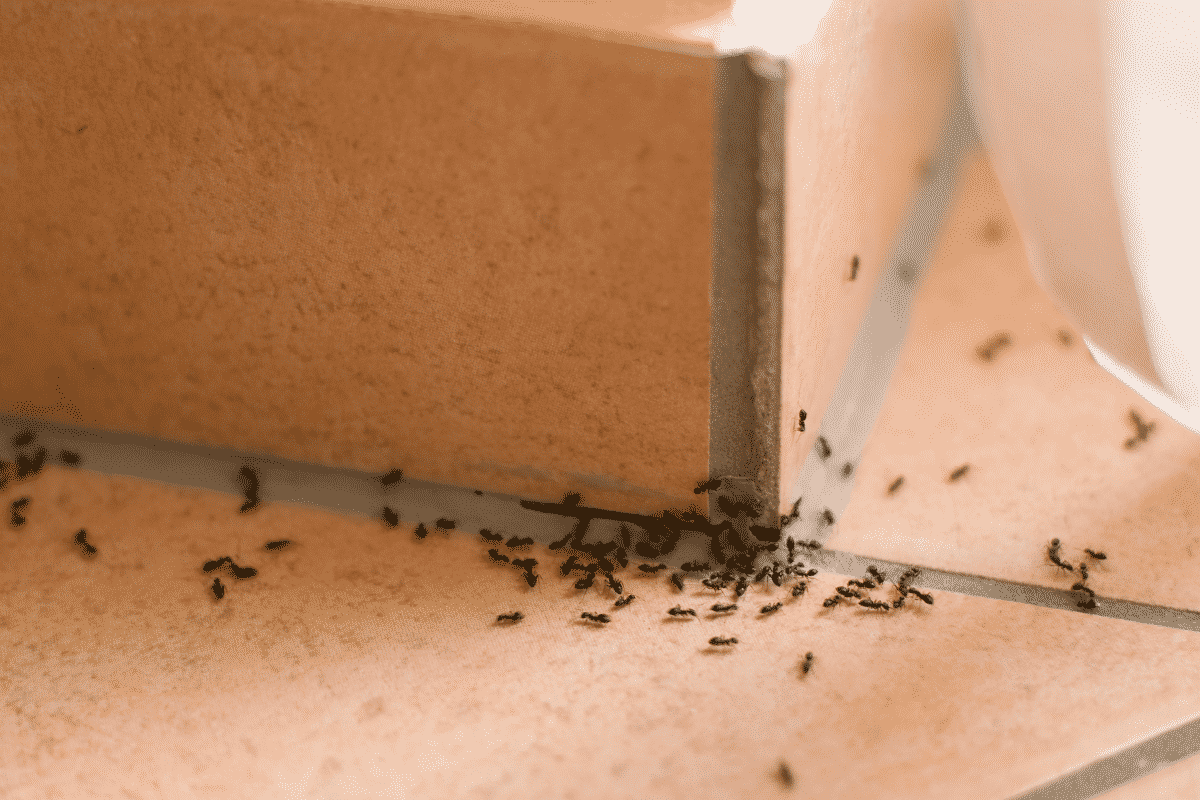Ant season is fast approaching. In fact, we received our first ant control enquiry this week. Our customer found a few black ants in her kitchen. Leaving her very confused. She assumed ants would be inactive at this time of the year. Every year, shocked customers call us about how early in the year they find ants in their homes. As ants are one of the most common household pests, we feel everyone should know the basics about how and when infestations occur. So, here is everything you need to know about ant season.
Ant Season Begins
Ant season typically starts between late Winter and early Spring. Ants come out of hibernation as the weather starts to warm up. So, depending on the average temperatures, ants become active anytime from mid-February to early March. Worker ants are the first to become active. As it is their job to search for food. It is critical for the colonies survival that they work fast.
Worker ants work in small numbers. So, you may not notice them at this stage. However, treatment is most effective and straightforward at this time of year. As the colony is still small, it is easier to eradicate. Sterilising the Queen will stop the colony from growing. And then, it should just take one or two sprays to kill off the remaining ants.
Season Peaks
For the first few months, ants focus on building and growing the colony. Workers source food to feed up the Queen. In order for her to reproduce as much as possible. The colony grows considerably by early summer. And by the height of summer, ant season is in full swing. By this point, a single colony contains thousands of ants. And the colony functions like a well-oiled machine. Workers search for food. Alerting the colony to retrieve anything they find. Additionally, they tend to the eggs. While the Queen’s main role is to keep laying eggs.
At this point, an infestation would be unmissable. As the sheer number of ants foraging and retrieving food would be so high. Treatment at the peak of the season is effective. However, not as straightforward as it would be earlier in the year. Depending on the size of the colony, it could take 4 or more sprays to kill them off.
Season Ends
Throughout autumn, ants consume as much food as they can. In preparation for winter. As the cold weather arrives, ants seemingly disappear. However, they essentially just hibernate. In winter, ants enter a dormant state. Retreating to their nests, and huddling together to protect the Queen, while keeping warm. Utilising the stored foods to keep them going.
Spottings ants searching for food in the winter is not unheard of. Typically unseasonally warm weather awakens ants. The rise in temperatures can trick ants into thinking it is approaching spring. However, once the temperatures drop again, they retreat back to dormancy. Performing ant treatments in winter is advisable if the nest becomes active.
Contact Ultimate Pest Control
Worried you might have an ant infestation? Call or email Ultimate Pest Control today for a free quote!

